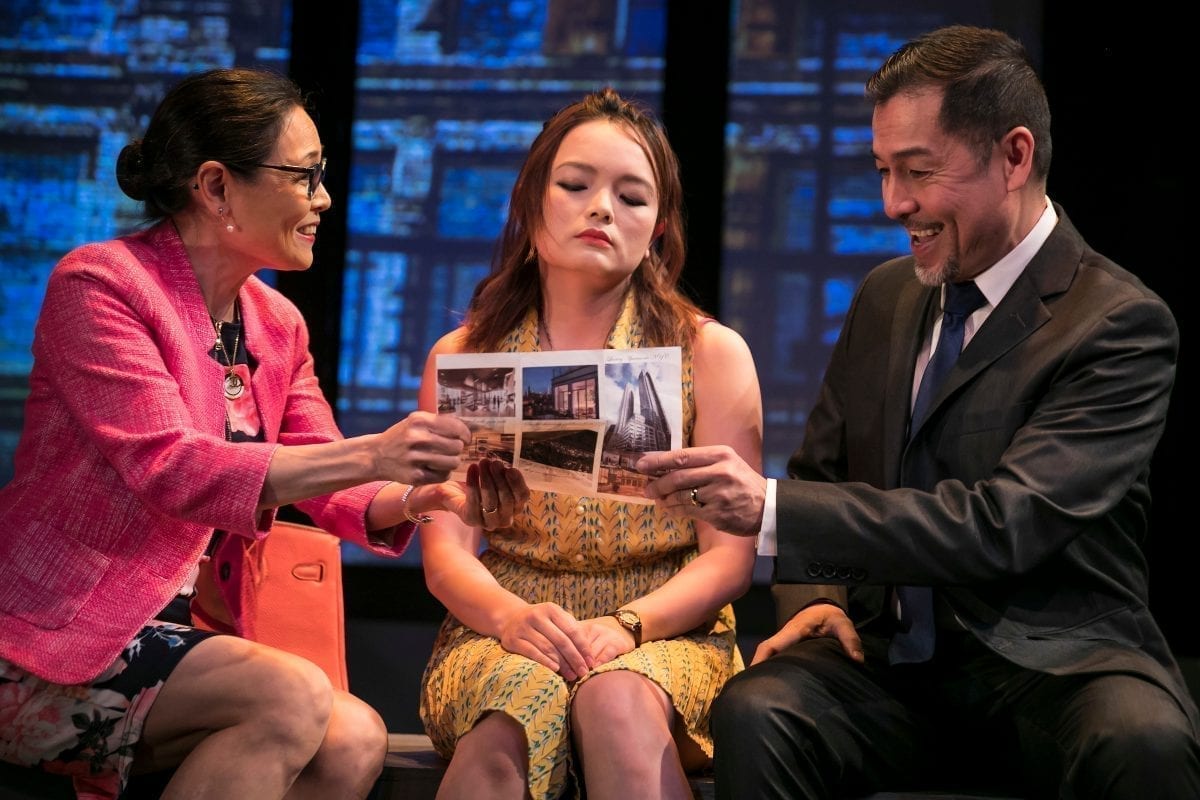A Deal is a fast-paced drama that examines the swift transformation of the Chinese middle class, a painful, funny, moving look at the intersection of communism and capitalism and its consequences.
Mr. and Mrs. Li, long married and unabashedly proud of their hard-won wealth, are hungry to claim a place in the United States, having been sold an opportunity to be “a rising power in a new world” by an obviously crooked salesperson back in Shanghai. Upon arriving in New York, they quickly discover they’ve been duped in an elaborate real estate scam. This is the first of many financial and ideological “deals” that ensue, carried along by a succession of lies, falsehoods, assumptions, and concessions.
The Li’s daughter Katherine is also in New York. She has been able to free herself of what she perceives to be a futureless life in China because of her parents’ wealth and sweat equity. She too wants to free herself to ascend to “elite” status, American-style.
The Lis are schooled in the realities of New York real estate by Peter, Mrs. Li’s old flame. They can have their dream, he explains in variations, but it will not be as they imagine. Having long ago assimilated, Peter acts as their guide in this new world, but also stands as an emblem of betrayal. Mr. Li accuses him of having long ago turned his back on China, of betraying deep-rooted Communist loyalties. Their clashing grows in intensity throughout the play, two opposing viewpoints each subscribing to their own propagandistic beliefs.
In an interview, Katherine impulsively betrays her parents, claiming she is the innocent victim of a brutal Chinese upbringing. Playwright Zhu Yi cleverly condenses her accelerated ascendency from “activist” and “creative dissenter” to true celebrity – TED Talk, SNL spot – all on the premise of a lie.
The parents want to live among “elite” Americans but are not elite, except perhaps in China, or compared to their family members; the daughter hides behind her false narrative and shields her Western counterparts from her wealth as she “slums” in the theatre community. The truth is somewhere in the middle.
Mrs. Li, played exceptionally by Lydia Gaston, embodies the center – loyal to her hardworking, traditional Chinese husband, but still romantically drawn to Peter, his artistic, free spirit, and Western life. They share a brief, interrupted romantic moment right under Mr. Li’s dozing nose. They reenact the most passionate scene in Romeo and Juliet, but it’s not an act. In worlds controlled by money and deals, is romance the most subversive act?
The subtheme of the theatre community isn’t as powerful as the major theme of Chinese ascension in the West, but both illustrate a profound desire to succeed at any cost. The “insider” jokes about the theatre seem forced, and some of the exchanges between Katherine and the playwright could be trimmed away. As the play will be touring throughout China, it may resonate more effectively without those extraneous scenes.
The parents finally confront Katherine, lamenting having “raised a tool for American imperialism!” Mr. Li sinks back into his self-loathing role of the controlling, Communist loyalist. He sees Katherine’s success as a result of generations of work and toil. Each sees the other as a betrayal of their own ideals. This is a Chinese version of Philip Roth’s American Pastoral.
Zhu Yi offers some ingeniously funny moments. A slow-motion fight scene is brutally hilarious. Alan Ariano as Mr. Li is magnificent as the torn, angry, volatile, aging father. And Helen Coxe displays an incredible versatility and humor.
Offering a fascinating examination of our collective biases and how we are shaped by our beliefs, A Deal will make you think about how the political is personal.

